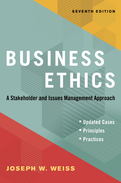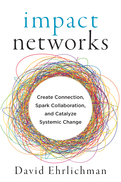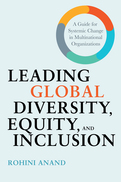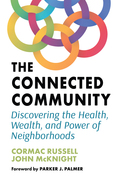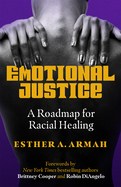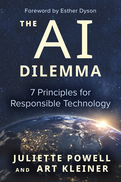Search Results: "Social Venture Networks/books/marketing-that-matters.htm"
Results 187-192 of 345
The seventh edition of this pragmatic guide to determining right and wrong in the workplace is updated with new case studies, exercises, and ancillary materials.
Joseph Weiss's Business Ethics is a pragmatic, hands-on guide for determining right and wrong in the business world. To be socially responsible and ethical, Weiss maintains, businesses must acknowledge the impact their decisions can have on the world beyond their walls. An advantage of the book is the integration of a stakeholder perspective with an issues and crisis management approach so students can look at how a business's actions affect not just share price and profit but the well-being of employees, customers, suppliers, the local community, the larger society, other nations, and the environment.
Weiss includes twenty-three cases that immerse students directly in contemporary ethical dilemmas. Eight new cases in this edition include Facebook's (mis)use of customer data, the impact of COVID-19 on higher education, the opioid epidemic, the rise of Uber, the rapid growth of AI, safety concerns over the Boeing 737, the Wells Fargo false saving accounts scandal, and plastics being dumped into the ocean.
Several chapters feature a unique point/counterpoint exercise that challenges students to argue both sides of a heated ethical issue. This edition has eleven new point/counterpoint exercises, addressing questions like, Should tech giants be broken apart? What is the line between free speech and dangerous disinformation? Has the Me Too movement gone too far? As with previous editions, the seventh edition features a complete set of ancillary materials for instructors: teaching guides, test banks, and PowerPoint presentations.
Joseph Weiss's Business Ethics is a pragmatic, hands-on guide for determining right and wrong in the business world. To be socially responsible and ethical, Weiss maintains, businesses must acknowledge the impact their decisions can have on the world beyond their walls. An advantage of the book is the integration of a stakeholder perspective with an issues and crisis management approach so students can look at how a business's actions affect not just share price and profit but the well-being of employees, customers, suppliers, the local community, the larger society, other nations, and the environment.
Weiss includes twenty-three cases that immerse students directly in contemporary ethical dilemmas. Eight new cases in this edition include Facebook's (mis)use of customer data, the impact of COVID-19 on higher education, the opioid epidemic, the rise of Uber, the rapid growth of AI, safety concerns over the Boeing 737, the Wells Fargo false saving accounts scandal, and plastics being dumped into the ocean.
Several chapters feature a unique point/counterpoint exercise that challenges students to argue both sides of a heated ethical issue. This edition has eleven new point/counterpoint exercises, addressing questions like, Should tech giants be broken apart? What is the line between free speech and dangerous disinformation? Has the Me Too movement gone too far? As with previous editions, the seventh edition features a complete set of ancillary materials for instructors: teaching guides, test banks, and PowerPoint presentations.
Impact Networks
2021
This practical guide shows how to facilitate collaboration among diverse individuals and organizations to navigate complexity and create change in our interconnected world.
The social and environmental challenges we face today are not only complex, they are also systemic and structural and have no obvious solutions. They require diverse combinations of people, organizations, and sectors to coordinate actions and work together even when the way forward is unclear. Even so, collaborative efforts often fail because they attempt to navigate complexity with traditional strategic plans, created by hierarchies that ignore the way people naturally connect.
By embracing a living-systems approach to organizing, impact networks bring people together to build relationships across boundaries; leverage the existing work, skills, and motivations of the group; and make progress amid unpredictable and ever-changing conditions. As a powerful and flexible organizing system that can span regions, organizations, and silos of all kinds, impact networks underlie some of the most impressive and large-scale efforts to create change across the globe.
David Ehrlichman draws on his experience as a network builder; interviews with dozens of network leaders; and insights from the fields of network science, community building, and systems thinking to provide a clear process for creating and developing impact networks. Given the increasing complexity of our society and the issues we face, our ability to form, grow, and work through networks has never been more essential.
The social and environmental challenges we face today are not only complex, they are also systemic and structural and have no obvious solutions. They require diverse combinations of people, organizations, and sectors to coordinate actions and work together even when the way forward is unclear. Even so, collaborative efforts often fail because they attempt to navigate complexity with traditional strategic plans, created by hierarchies that ignore the way people naturally connect.
By embracing a living-systems approach to organizing, impact networks bring people together to build relationships across boundaries; leverage the existing work, skills, and motivations of the group; and make progress amid unpredictable and ever-changing conditions. As a powerful and flexible organizing system that can span regions, organizations, and silos of all kinds, impact networks underlie some of the most impressive and large-scale efforts to create change across the globe.
David Ehrlichman draws on his experience as a network builder; interviews with dozens of network leaders; and insights from the fields of network science, community building, and systems thinking to provide a clear process for creating and developing impact networks. Given the increasing complexity of our society and the issues we face, our ability to form, grow, and work through networks has never been more essential.
This book offers five proven principles so multinational companies can advance diversity, equity, and inclusion with a nuanced understanding of local contexts across countries and cultures. This book offers five proven principles so multinational companies can advance diversity, equity, and inclusion with a nuanced understanding of local contexts across countries and cultures.
It's easy to fall into the trap of using a single-culture worldview when implementing global DEI in organizations. But what makes DEI change efforts successful in one country may have opposite, unintended consequences in another. How do companies find the right balance between anchoring their efforts locally while pushing for change that may disrupt existing power dynamics?
This is the question at the heart of global DEI work. Along with practical advice and examples, Rohini Anand offers five overarching principles derived from her own experience leading global DEI transformation and interviews with more than sixty-five leaders to provide a through line for leading global DEI transformation in divergent cultures.
Local relevance—understanding markets and acknowledging local beliefs, regulations, and history—is essential for global success. This groundbreaking book explicitly details how to take local histories, laws, and practices into account in DEI transformation work while promoting social justice worldwide.
It's easy to fall into the trap of using a single-culture worldview when implementing global DEI in organizations. But what makes DEI change efforts successful in one country may have opposite, unintended consequences in another. How do companies find the right balance between anchoring their efforts locally while pushing for change that may disrupt existing power dynamics?
This is the question at the heart of global DEI work. Along with practical advice and examples, Rohini Anand offers five overarching principles derived from her own experience leading global DEI transformation and interviews with more than sixty-five leaders to provide a through line for leading global DEI transformation in divergent cultures.
Local relevance—understanding markets and acknowledging local beliefs, regulations, and history—is essential for global success. This groundbreaking book explicitly details how to take local histories, laws, and practices into account in DEI transformation work while promoting social justice worldwide.
Find out how to uncover the hidden talents, assets, and abilities in your neighborhood and bring them together to create a vibrant and joyful community. It takes a village!
We may be living longer, but people are more socially isolated than ever before. As a result, we are hindered both mentally and physically, and many of us are looking for something concrete we can do to address problems like poverty, racism, and climate change. What if solutions could be found on your very doorstep or just two door knocks away?
Cormac Russell is a veteran practitioner of asset-based community development (ABCD), which focuses on uncovering and leveraging the hidden resources, skills, and experience in our neighborhoods. He and John McKnight, the cooriginator of ABCD, show how anyone can discover this untapped potential and connect with his or her neighbors to create healthier, safer, greener, more prosperous, and welcoming communities. They offer a wealth of illustrative examples from around the world that will inspire you to explore your own community and discover its hidden treasures.
You will learn to take action on what you already deeply know-that neighborliness is not just a nice-to-have personal characteristic but essential to living a fruitful life and a powerful amplifier of community change and renewal.
We may be living longer, but people are more socially isolated than ever before. As a result, we are hindered both mentally and physically, and many of us are looking for something concrete we can do to address problems like poverty, racism, and climate change. What if solutions could be found on your very doorstep or just two door knocks away?
Cormac Russell is a veteran practitioner of asset-based community development (ABCD), which focuses on uncovering and leveraging the hidden resources, skills, and experience in our neighborhoods. He and John McKnight, the cooriginator of ABCD, show how anyone can discover this untapped potential and connect with his or her neighbors to create healthier, safer, greener, more prosperous, and welcoming communities. They offer a wealth of illustrative examples from around the world that will inspire you to explore your own community and discover its hidden treasures.
You will learn to take action on what you already deeply know-that neighborliness is not just a nice-to-have personal characteristic but essential to living a fruitful life and a powerful amplifier of community change and renewal.
Emotional Justice
2022
It is time for an emotional reckoning on our path to racial healing, sustainable equity, and the future of DEI. Here's the tool to help us navigate it.
In this groundbreaking book, Esther Armah argues that the crucial missing piece to racial healing and sustainable equity is emotional justice-a new racial healing language to help us do our emotional work. This work is part of the emotional reckoning we must navigate if racial healing is to be more than a dream. We all-white, Black, Brown-have our emotional work that we need to do. But that work is not the same for all of us.
This emotional work means unlearning the language of whiteness, a narrative that centers white people, particularly white men, no matter the deadly cost and consequence to all women and to global Black and Brown people. That's why a new racial healing language is crucial.
Emotional Justice grapples with how a legacy of untreated trauma from oppressive systems has created and sustained dual deadly fictions: white superiority and Black inferiority that shape-and wound-all of us. These systems must be dismantled to build a future that serves justice to everyone, not just some of us. We are the dismantlers we have been waiting for, and emotional justice is the game changer for a just future that benefits all of us.
In this groundbreaking book, Esther Armah argues that the crucial missing piece to racial healing and sustainable equity is emotional justice-a new racial healing language to help us do our emotional work. This work is part of the emotional reckoning we must navigate if racial healing is to be more than a dream. We all-white, Black, Brown-have our emotional work that we need to do. But that work is not the same for all of us.
This emotional work means unlearning the language of whiteness, a narrative that centers white people, particularly white men, no matter the deadly cost and consequence to all women and to global Black and Brown people. That's why a new racial healing language is crucial.
Emotional Justice grapples with how a legacy of untreated trauma from oppressive systems has created and sustained dual deadly fictions: white superiority and Black inferiority that shape-and wound-all of us. These systems must be dismantled to build a future that serves justice to everyone, not just some of us. We are the dismantlers we have been waiting for, and emotional justice is the game changer for a just future that benefits all of us.
The AI Dilemma
2023
The misuse of AI has led to wrongful arrests, denial of medical care, even genocide-this book offers 7 powerful principles that business can use now to end the harm.
AI holds incredible promise to improve virtually every aspect of our lives, but we can't ignore its risks, mishaps and misuses. Juliette Powell and Art Kleiner offer seven principles for ensuring that machine learning supports human flourishing. They draw on Powell's research at Columbia University and use a wealth of real-world examples.
Four principles relate to AI systems themselves. Human risk must be rigorously determined and consciously included in any design process. AI systems must be understandable and transparent to any observer, not just the engineers working on them. People must be allowed to protect and manage their personal data. The biases embedded in AI must be confronted and reduced.
The final three principles pertain to the organizations that create AI systems. There must be procedures in place to hold them accountable for negative consequences. Organizations need to be loosely structured so that problems in one area can be isolated and resolved before they spread and sabotage the whole system. Finally, there must be psychological safety and creative friction, so that anyone involved in software development can bring problems to light without fear of reprisal.
Powell and Kleiner explore how to implement each principle, citing current best practices, promising new developments, and sobering cautionary tales. Incorporating the perspectives of engineers, businesspeople, government officials, and social activists, this book will help us realize the unprecedented benefits and opportunities AI systems can provide.
AI holds incredible promise to improve virtually every aspect of our lives, but we can't ignore its risks, mishaps and misuses. Juliette Powell and Art Kleiner offer seven principles for ensuring that machine learning supports human flourishing. They draw on Powell's research at Columbia University and use a wealth of real-world examples.
Four principles relate to AI systems themselves. Human risk must be rigorously determined and consciously included in any design process. AI systems must be understandable and transparent to any observer, not just the engineers working on them. People must be allowed to protect and manage their personal data. The biases embedded in AI must be confronted and reduced.
The final three principles pertain to the organizations that create AI systems. There must be procedures in place to hold them accountable for negative consequences. Organizations need to be loosely structured so that problems in one area can be isolated and resolved before they spread and sabotage the whole system. Finally, there must be psychological safety and creative friction, so that anyone involved in software development can bring problems to light without fear of reprisal.
Powell and Kleiner explore how to implement each principle, citing current best practices, promising new developments, and sobering cautionary tales. Incorporating the perspectives of engineers, businesspeople, government officials, and social activists, this book will help us realize the unprecedented benefits and opportunities AI systems can provide.


